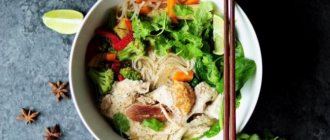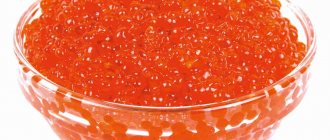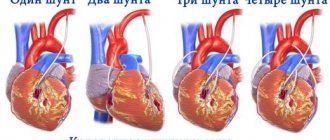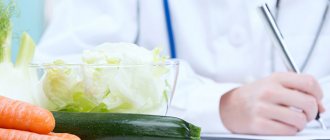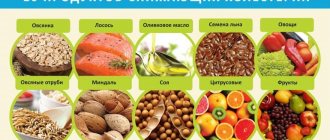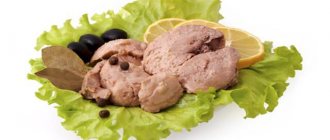Increased blood cholesterol is a problem that can lead to the development of atherosclerosis. That is why experts recommend minimizing products containing this lipoprotein compound. However, you shouldn’t completely abandon them - after all, they include both meat and eggs - irreplaceable sources of animal protein. But do not forget that you need to monitor your LDL levels. It should not be either too low or too high. We will talk about what foods contain cholesterol and how to avoid health problems associated with exceeding the norm in this article.
Our additional services: Bioimpedance | Marutaka Massage | Pressotherapy | Ion-Detox
Cholesterol: what do we know about it?
This is the second name for lipoprotein compounds - a fatty alcohol that dissolves not in water, but in lipids, which are its carriers through the bloodstream of the body. It plays not only a negative role - it causes the development of atherosclerosis - but also makes an invaluable contribution to strengthening cell membranes, is contained in the brain and acts as a structural element of the adrenal glands and gonads.
Cholesterol is also found in mother's milk, which allows the child to grow strong and healthy. So do not underestimate its effect on the functioning of our body.
Before finding out what you can’t eat if you have high cholesterol, and what you can, let’s look at the main functions of this compound:
Part of cell membranes and nerve endings.
- Strengthens the immune system and protects against cancer.
- Helps the adrenal glands and sex glands produce hormones: cortisol, estrogens, progesterone, etc.
- Stimulates brain function.
- Allows the production of vitamin D.
In total, our body contains about 350 g of cholesterol. Most of it is found in tissues, and only 10% circulates in the blood.
We produce cholesterol ourselves - such compounds are called endogenous. The liver, small intestine and other organs are responsible for their synthesis. Much less building material for cell membranes comes from food - this is exogenous fatty alcohol.
Not all cholesterol is bad. Experts divide it into two groups:
- The first includes lipoproteins that are characterized by high density. They cleanse our body of excess potentially dangerous substances, cleanse blood vessels, preventing the development of atherosclerosis.
- The second contains low-density lipoproteins, as well as triglycerides - compounds that harm our health by increasing cholesterol levels in the blood. This leads to the growth of atherosclerotic plaques, impaired blood circulation, fat and protein metabolism, blockage of blood vessels and the development of coronary heart disease.
At the same time, we should not forget that cholesterol in its free form is not dangerous. The nature of the effect on the body is determined at the stage of addition of fatty alcohol to a particular transport protein.
Features of choice
Assorted nuts
In order to reduce cholesterol and nuts have health benefits, it is important to know what to look for. We present to your attention simple instructions, following which the chances of buying a low-quality product will be minimal. It is better to buy unpeeled ones.
The kernels are not exposed to light or surrounding air. Purified products can be subjected to various types of treatments (physical or chemical) to preserve shelf life or improve presentation, but in this case a significant part of the beneficial qualities is lost.
The healthiest ones are fresh, shelled nuts. When frying, the nutritional qualities remain at approximately the same level, but the healing properties fade away.
The best are the fruits of plants growing in the same area in which a person lives, and imported exotic species intended for export are treated with preservatives that have a detrimental effect not only on mold and pests, but also on health.
The note. Nuts in glaze or included in confectionery products have low therapeutic properties because the kernels chosen for this are not of the highest quality; as a rule, they are subjected to heat treatment and preservation with sugar, which hides the shortcomings.
You should not buy products if:
- the nuts are rancid and have an old smell;
- with traces of mold;
- the kernels are processed with flavor enhancers, flavorings, glazes, etc.;
- the surface is heterogeneously colored with black inclusions.
Contraindications
Nuts are a healthy and favorite product for many, but they are not recommended for consumption by all people. First of all, those who are overweight or on a diet to lose weight should not eat a lot of them, since such food is high in calories.
If a person has problems with the gastrointestinal tract, it is advisable to obtain permission from a doctor. It's all about the high content of oils and hard-to-digest fibers.
Allergy sufferers and asthmatics are allowed to consume nuts only after special tests have been carried out, the results of which will show no active reactions to the product, the same applies to those suffering from skin dermatitis. Most often, undesirable effects occur in young children, so they should not be given a lot of nuts to eat, and adults need to carefully monitor the body’s reaction.
The note. Nutritionists consider 30-50 grams of nuts to be the optimal daily dose. If you consume more, you need to monitor your body weight so as not to gain extra pounds.
Find out more about our weight loss programs:
Preventing the accumulation of low-density lipoproteins in the body means saving yourself from problems with the heart and blood vessels, as well as... from excess weight. How does this substance affect body weight?
- There is especially a lot of cholesterol in fast food and processed foods. The more fatty, fried and high-calorie foods we eat, the greater our volumes. Trans fats, found in excess in fast food products, Big Macs and French fries, also lead to the development of obesity.
- What happens when we start gaining weight rapidly? Triglyceride and cholesterol levels increase. These compounds are insoluble in water and in blood plasma. In order to get to their “destination”, they must find a mate. Proteins act as a transport vehicle, which, in tandem with fatty alcohol, are converted into lipoproteins. If their density is low, our body will receive nothing but harm.
If the density of lipoproteins is high, they go straight to the liver, from where they then enter the intestines. Bile also comes with them. By getting a lot of bad cholesterol from food (from fast food, processed foods), we increase the load on the liver - it works to the limit of its strength and capabilities, releasing more and more fatty alcohol. As a result, its concentration increases, bile becomes thicker, even viscous, which leads to the formation of hard concretions - in other words, stones.
So there are many dangers that await those who like to eat in fast food restaurants or warm up something hearty and harmful for dinner: these are problems with the heart and blood vessels, heart attacks and strokes, obesity and cholelithiasis. The only thing we can do to help ourselves is to control what we eat and have a healthy lifestyle, which includes proper nutrition.
How do you know if the cholesterol in your blood is higher than normal? Pay attention to how you feel. The following symptoms indicate the need to change your diet:
- fast fatiguability;
- hypertension;
- frequent headaches;
- drowsiness;
- functional disorders of the intestines (diarrhea, constipation);
- poor appetite;
- nervousness.
What increases blood cholesterol: who is at risk
The levels of high and low density lipoproteins can be influenced by several factors. It is necessary to monitor your diet and avoid the predominance of high-fat foods in it if you:
- Are you suffering from excess weight?
In this case, we are talking about serious health problems, since the level of good cholesterol in obese people is low, and bad cholesterol, on the contrary, is much higher than it should be normally. In order to help your body, you just need to lose weight - not by limiting yourself and starving, but by switching to a healthy diet.
- You eat a lot of high-calorie and fatty foods
This factor is perhaps the most important, since the condition of your heart and blood vessels directly depends on what you eat. Next, we will talk about foods that contain the most harmful monofat. In the meantime, we just remind you that the calorie content of food should be minimal, and the diet should be balanced and healthy.
- You move very little
Literally from home to the store or work and back. In this case, your good cholesterol levels will be low and your bad cholesterol levels will be high, even if you are not overweight. If you are not ready for jogging and aerobics, walk more, stop riding in the elevator, walk in parks more often, and go hiking.
- You are over 50 years old
For those over twenty, cholesterol levels rise slowly, and its rise does not depend on your size or lifestyle. After fifty, the indicator freezes in men, while in women it remains at a low level - until menopause, which is followed by a new upward spurt.
- Your parents suffer from heart disease
These problems can be inherited, which means you have every chance of developing high cholesterol.
- Do you smoke
Tobacco smoking affects the level of good lipoproteins, reducing their concentration in the blood. This leads to diseases of the cardiovascular system.
- You have problems with the thyroid gland
In this case, exceeding the norm may indicate diabetes or hypothyroidism, since it itself is a consequence of disturbances in the functioning of the endocrine gland.
Diagnosis of lipid levels
Fried foods contain a lot of cholesterol
Cholesterol in the human body, or rather its level, is extremely easy to diagnose. As a material for research, blood is taken either from the ulnar vein or from the phalanx of the finger of the left hand.
To calculate the amount of lipids of different types, a general clinical blood test is performed. You can carry out such diagnostics both according to the doctor’s indications and your personal desire.
The analysis does not require significant preparatory measures. To get the most accurate results, it is enough:
- donate blood on an empty stomach;
- stop drinking alcohol the day before the test;
- do not smoke 2-3 hours before collecting biomaterial;
- do not strain yourself physically and mentally before the diagnosis.
The analysis itself is carried out in the following order:
- The diagnostician talks with the patient being examined on all important issues.
- If an examination is possible, blood sampling is performed.
- Places it in a special container and sends it to the laboratory for research.
Cholesterol tests are done quickly. As a rule, the results are ready on the 2nd or 3rd day after diagnosis. A doctor must assess their normality, since the norms depend on the gender, age and health status of the person being examined.
On average, normal cholesterol levels range from:
- 2.3-4.7 mmol per liter in men and 1.9-4.4 in women for bad lipids;
- 0.7-1.8 mmol per liter in men and 0.8-2.3 in women for good lipids;
- 2.9-7 mmol per liter in men and 3-7.8 in women for both types of compounds.
Let us repeat, the indicated indicators are extremely averaged. The norm is determined for all individuals examined individually, since it is important to take into account their age, gender, and current state of health.
What not to eat if you have high cholesterol: rules for creating a diet
Nutrition is one of the main factors influencing the dynamics of an important compound in the blood. It is through food that we get about 25% of all fatty alcohol. Therefore, it is especially important to monitor the combination of products. Excluded:
- lamb, pork and other fatty meats;
- smoked meats and semi-finished products;
- fast food;
- hard margarine;
- Fried fish;
- oil creams;
- candied fruits;
- candies;
- high-calorie nuts (hazelnuts, peanuts);
- mayonnaise and fatty sauces;
- coffee;
- soda.
These are prohibited foods for high cholesterol. Their excessive consumption can lead to the formation of atherosclerotic plaques, the development of coronary heart disease, as well as obesity and cholelithiasis.
High-calorie meat is one of the first to be excluded from the diet. For example, the liver contains an abundance of harmful compounds, so if you do not want to risk your health and figure, avoid this offal. Also leading positions are occupied by duck and goose meat - a storehouse of bad cholesterol. Even when cooking chicken, it is advisable to remove the skin from the carcass to prevent excess fat from entering the body.
It is also necessary to remove sausages and sausages, store-bought sausages, as well as fast food and margarine from the diet. Donuts, chips and other unhealthy treats contain trans fats that can double the concentration of lipoproteins.
You can find out what those who are concerned about their health should not eat and what foods should be excluded if they have high cholesterol can be found in the table.
The black list included margarine and full-fat milk, butter, red meat and processed foods. The ideal option is to refuse such food. Its minimal presence in the diet is also welcome. The main thing is to carefully monitor what you eat (you can use a food diary for this).
Now let’s talk about those healthy and tasty food helpers that reduce lipoprotein levels and help avoid obesity and heart disease.
Folk recipes
Since walnuts lower blood cholesterol, they are often used in folk medicine. To prevent atherosclerosis, you can mix 10 nut kernels with 3 small cloves of garlic and add a spoonful of any vegetable oil, as well as grated cheese to taste. The resulting mass can be used for sandwiches.
If the increase in cholesterol is associated with a previous disease, it can be lowered with the help of nut balm. Aloe leaves and natural honey are used as additional ingredients for its preparation.
What reduces cholesterol at home?
- Cherry
Doctors have proven that if you use it every day, you will not know what arthritis and diabetes are. You can eat cherries both fresh and heat-treated - in jams, compotes, jelly. It is believed that the richer the color, the greater the benefit, so your goal is bright red, almost black berries.
- Artichokes
This plant helps to cope not only with problems in the genitourinary area, but also with high cholesterol. The extract of the edible inflorescence has a healing effect.
- Blueberry
Another member of our list, rich in antioxidants and vitamins. These include a substance called pterostilbene, which affects low-density lipoproteins, affecting the level of harmful molecules in the blood.
- Walnuts
What else can you eat if you have high cholesterol? Nuts containing monosaturated fats. However, you won’t be able to eat a lot of them - they are high in calories and can harm your figure. So it is better to introduce them into the diet in small portions so as not to gain new kilograms.
- Tea
You can drink both black and green. About 5 cups of aromatic drink per day is enough - this is the optimal amount to enjoy the pleasant taste and not harm yourself.
- Olive oil
Another irreplaceable product that is eaten for high cholesterol. Vegetable oil from olive fruits contains healthy monosaturated fats, just like walnuts.
- Beans
It contains fiber, which removes excess harmful substances from the body. American researchers have proven that regular consumption of about 300 g of beans (not canned, but boiled) over three weeks helps to return to normal levels.
Here's what you can and shouldn't eat if you have high cholesterol. But there are also products whose dangers or miraculous properties are exaggerated. This:
- Eggs - they do not provoke the development of atherosclerosis. Two eggs a day will not ruin your health. Do not forget about this valuable source of animal protein and refuse it, like, for example, fatty meat, which is also rich in protein.
- Garlic - it was said that it can reduce cholesterol levels. It turned out that this is just a myth. This is exactly the conclusion that researchers came to when they proved in an experiment that daily consumption of the “king of spices” does not affect important indicators in any way - it only affects breathing and gives sweat a specific smell.
Look at our Clients' Acknowledgments and Success Stories - View
Our specialists will tell you which foods you can and cannot eat if you have high cholesterol, and will give recommendations taking into account your health condition and body characteristics, so that you can lose excess weight without problems. We do not prohibit, but allow everything that is healthy and delicious - in reasonable quantities. Come visit us and find out how proper nutrition can help you lose weight.
The most popular types of nuts
Different types of nuts with honey (photo from market stalls in Sochi)
Regardless of the species, all fruits of nut trees are useful to one degree or another and, thanks to their active substances, can have a positive effect on the body, including helping to reduce the level of bad cholesterol. Therefore, doctors strongly recommend including nuts in the menu for people suffering from atherosclerosis as a good preventative measure, especially since their price is affordable.
The main effect on cholesterol levels is exerted by unsaturated fatty acids, which increase the quantitative indicators of good cholesterol. Almonds, pistachios, cashews, and hazelnuts are suitable for these purposes.
A persistent negative relationship is observed in the pairing of walnuts and cholesterol, when with regular moderate consumption of fresh kernels, a reduction in bad cholesterol in test results can be achieved by up to 10%. Below we will dwell in more detail on the most popular varieties.
Walnut
Walnut
Everything that was said above fully applies to this particular species. To the above, we can only add that walnuts are the most affordable in the price range; they have a positive effect on memory and are therefore indicated for students.
Thanks to their unique taste, they are an excellent dietary supplement in the winter-spring period, when the body is extremely important for the supply of vitamins and minerals of natural origin. The kernels go well with dairy products, honey, cereals, vegetables and fruits.
It is not for nothing that walnuts are one of the basic ingredients in the cuisine of the peoples of the Caucasus, famous for their longevity and perky disposition. Ground kernels can be placed in salads, sauces, culinary products and added to dried fruits.
They contain a substance of plant origin, phytosterol, which is very similar to cholesterol in chemical properties, but does not accumulate in the body and, therefore, cannot take part in the formation of atherosclerotic plaques. The table shows how you can use walnuts for cholesterol.
Table. Recipes for cleaning blood vessels from cholesterol based on walnuts:
| Name | Preparation and consumption |
| Grind 100 g of nuts and a medium head of garlic, pour everything over two glasses of warm milk for several hours. Take 15 g of the mixture three times a day before meals. Duration of treatment is from 20 days. The product can be stored in the refrigerator for no more than 3-4 days. |
| Mix in equal quantities and eat a teaspoon several times a day. To improve the recipe, it is recommended to add prunes and dried apricots, grinding all the ingredients into a homogeneous mass. Keep refrigerated. |
| You can squeeze the oil yourself, or you can buy it at the market or pharmacy (for example, there is a photo below the table). You can take a teaspoon once a day as a medicine, or you can flavor porridges, salads and other dishes. |
| Pour the peeled nuts with acacia or fireweed honey (honey with a low degree of crystallization) and let it brew in a warm, dark place for 90 days. Then add bee pollen, or even better, bee bread and eat a tablespoon of this mixture three times a day before meals. |
Remember. Cholesterol and walnuts are incompatible. Regular use of them can, at elevated levels, reduce its content in the blood by up to 10%.
Walnut oil in glass packaging
Pine nut
Shelled and unshelled pine nuts
Now let's dwell a little on how cholesterol and pine nuts are related and immediately make a small correction - these are not nut kernels, but seeds extracted from a cedar cone. Since the seed coat is hard, and the achene itself is very similar to the nucleolus, it is no wonder that the name “pine nuts” has taken root among the people.
The same polyunsaturated fatty acids have a positive effect on lowering cholesterol, which contributes to the formation of stable high-density lipoprotein complexes.
Besides:
- normalization of lipid metabolism and decrease in body weight are recorded;
- Vitamin E, which is part of cedar oil, has powerful antioxidant properties and neutralizes the negative effects of free radicals;
- oleic acid stabilizes the content of triglycerides in the bloodstream;
- phytosterols slow down the deposition of subcutaneous fat in other tissues and have a preventive effect on the functioning of the muscular system of the heart.
Note. 50 grams of pine nuts contain about a third of the daily potassium requirement for the average adult.
Eating cedar kernels is beneficial, but allergy sufferers, asthmatics, and people with chronic diseases of the gastrointestinal tract and excretory system should be especially careful.
Almond
Shelled almonds
Almonds have a special, specific taste, but almond oil is of particular value. The nut can be consumed both raw (not quite ripe) and after full ripening; in the latter case, it will contain much more useful substances.
Healing properties are achieved thanks to:
- high content of valuable plant protein;
- fiber;
- tocopherols;
- a significant complex of substances exhibiting stable antioxidant properties.
All of the above components have a positive effect on the functioning of the cardiovascular system and the general condition of the body. Nutritionists point to a lasting positive effect that is observed with regular consumption of almonds for 100 days or more. When taken daily by patients with atherosclerosis in the early stages, it was possible to achieve a decrease in cholesterol from 3 to 12%.
There are two types implemented on the network. Bitter almonds must be subjected to heat treatment, without which a person can be poisoned. Sweet almonds are consumed in any form and are the ones that can most often be found in markets and store shelves.
Below are the main therapeutic effects that can be obtained by constantly eating 5-10 almond fruits:
- cleans blood and blood vessels from atherosclerotic plaques;
- has a beneficial effect on brain activity and the functioning of the central nervous system;
- the cellular structure of all epithelial tissues and their derivatives improves: nails, hair;
- vitamins and microelements increase immunity and enhance the formation of enzymes;
- the vascular endothelium is strengthened;
- it is a source of protein with essential amino acids and polyunsaturated fatty acids.
You can find more details about the beneficial properties of almonds and other nuts by watching the video posted in this article.
Hazelnut
Hazelnut
Hazelnuts are widely used not only for food, but also for cosmetology due to their therapeutic and prophylactic properties. In folk medicine, it is valued for having a beneficial effect on metabolic processes and reducing cholesterol levels in the blood.
Its components, in addition to their high nutritional value, are highly digestible. It cleanses not only the bloodstream, but also the liver; in addition, it increases the body’s defenses while replenishing the supply of microelements, vitamins and essential amino acids. Hazelnuts are a godsend for an intensively growing body, so teenagers are recommended to eat a handful of nuts daily, which will give them vigor, stamina and have a positive effect on mental activity.
For medicinal purposes, it is recommended to enhance the properties of hazelnuts by mixing them in equal proportions with natural dark bee honey, dried apricots and prunes. This recipe is not only tasty, but also very useful, especially in late winter and early spring, when the epidemiological threshold rises.
The recommended dose is a couple of tablespoons every day. This will strengthen your immune system and reduce cholesterol. You should not eat bitter old nuts.
Cashew
Cashew
This species is characterized by a high content of copper ions, which, together with plant fatty acids, enhances the effect of the latter in reducing cholesterol. Cashews contain a significant amount of lipids, so they are a high-calorie product, which should definitely be taken into account by people who tend to gain weight quickly, but for people with a low lipid content, the nut is even recommended by nutritionists.
Useful properties of cashews:
- increase HDL so the level of bad cholesterol decreases;
- positive effect on heart rate;
- the strength of the vascular walls increases, their elasticity increases;
- the immune and reproductive systems improve;
- tooth enamel is strengthened;
- the skin becomes smooth and silky, the structure of hair and nails improves.
Due to their high oil content, cashews have a short shelf life, and the higher the ambient temperature, the faster the nuts will go rancid. As a rule, when frozen, the taste does not change throughout the year, and at room temperature storage is possible for only a few months.
